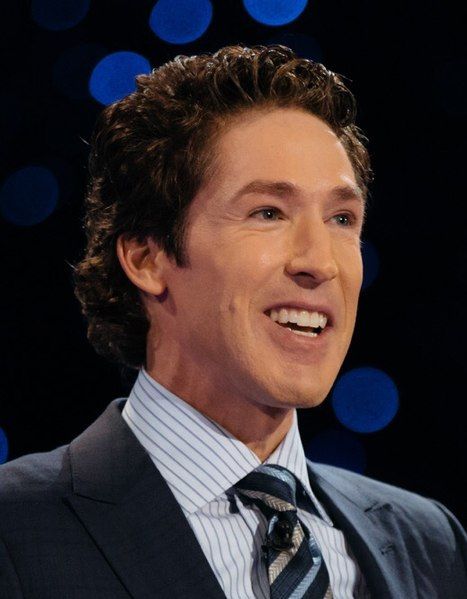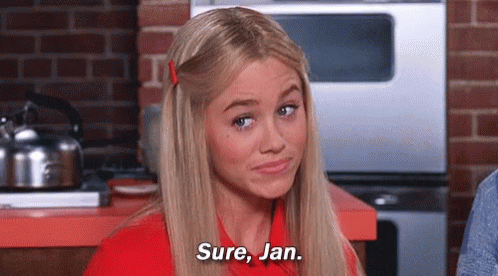All the promises are empty

A journey of deconstruction Part 3
"Prosperity Gospel" was inevitable. For those not familiar "Prosperity Gospel" is the idea that good Christians will be blessed with wealth in the current life. Therefore the most wealthy are the most righteous. Of course, the best way for God to recognize your goodness is for you to send $1 to the poor preacher on TV. Your contribution goes directly to his ministry of flying around in personal jets for some reason.

I believe most people[1] recognize these parasites for what they are, but the truth is they are not isolated. The Evangelical movement took a core idea from the Bible and wrapped it in a nice tortilla of white supremacy.
It goes like this: in Matthew 6:25-34 Jesus preaches that we shouldn't worry about tomorrow as God will provide everything we need. The flowers are here today and gone tomorrow but dressed better than "Solomon in all his splendor". Jesus goes on in the same sermon to deliver the famous line in 7:7-8: "Ask and it will be given to you ... everyone who asks receives".
Youth pastors have forever answered the question, "Can I ask for a cute partner or a race car and receive it?"
The thing is, that's kind of what it insinuates. The best "church answer" I received in response is that God wants us to ask for righteous things. Even that answer ignores the fact that there are people who suffer poverty, illness, or any manner of other horrors in their lives through the accident of their birth. We're left with a dearth of choices. God wants people to suffer so they'll turn to him, God blesses certain people because they have great wealth (without regard to their actions), or God is unable to prevent suffering at all.
TV preachers lean into the blessings aspect heavily. What better way to engage your wealthy, privileged, parishioners than to turn Jesus' teaching on its head? You're not sinful for hoarding wealth, you're blessed by God. Praise the Lord and pass the collection plate! (At least they own it).
Mainstream (White) Evangelicalism is a bit more subtle. Instead of teaching that it's okay to be wealthy directly, it tries to pretend that the majority white upper-middle-class congregants aren't wealthy. And if they are, it's okay because they're forgiven of it anyway. It goes so far as to downplay or even twist Bible passages that say the exact opposite[2].
A pretty common belief across Christianity is that God doesn't rate sin, white lies and murder are equal. Evangelicalism adds an unspoken belief that there are no degrees of suffering either. They can shrug off discussions of racism or bigotry because they equate those problems with minor inconveniences in their own life. (On a side note I absolutely love this silly video. It's quite old but I think it illustrates a typical Evangelical's view of the world)
I developed cracks in my faith going all the way back to high school but this awful belief kept me in for years longer. I'm not the kind of person who got picked first in school, I was bullied for various reasons, I didn't have a ton of friends. In my professional life, I haven't always gotten the best job. I don't have a perfect marriage or perfect kids. For the longest time, I thought there was something wrong with me, that I wasn't righteous enough because I believed the promise was perfection. I've felt inadequate. I have imposter syndrome. I get anxious. Jesus didn't take those things away. For the longest time, I thought I had to believe harder, I had to make Jesus notice me.

I couldn't understand one: that my problems are normal, everyone feels like that from time to time, and those that feel like that all the time need to seek help, not simply ask for a supernatural being to take it away from them[3]. And two, that my ethnicity nor my religious beliefs caused those things. As a white man, I'm seen as default in America. No one gets fired for hiring white men. No bank gives me worse interest rates, and no one worries about me carrying out Christian terrorist attacks. These things aren't true for people of color and the system keeps it that way. The pervasive lie that the system is fair goes beyond Evangelicalism, but they have leaned into it to maintain their own power.
It's no wonder Evangelicals cling to Trump or engage in grievance politics. We were taught to see a protest as a form of complaining about what we had. We were always expected to make do, and never ask for better. Someone who did was evil and trying to get more than they deserve. For a long time, I believed it. Sit down, shut up, do your job. You'll be rewarded at some point.
And when the rewards don't come you develop resentment. The pastor tells people it's the world's fault, the TV news says it's the expensive social programs, and social media says it's the liberals in league with a shady cabal of lizard people or some other nonsense. It's not getting better, believe harder, it's not getting better, lash out.
This difficult perception of my privilege began to crumble when I became friends with a gay man. He was perfectly normal, wishing to live a quiet life with his partner. They wanted to get married but of course, the law at the time prevented them from doing so. Both of them were funny and genuinely interesting humans[4].
Yours truly made a spectacularly dumb comment to a coworker along the lines of, "I really like [name redacted] and his partner but I don't think society should call it 'marriage'"
I didn't expect my coworker's visceral reaction. "What makes your commitment more special than there's?" he demanded, "What is it about hetero marriages that we should downplay their love? Even if you believe it's lesser, how does them calling it 'marriage' affect your own?"
I didn't have an answer. It was the first time I was exposed to an opinion on LGBTQ+ issues that wasn't shaped by my church. And of course, the answer is that my marriage isn't special to the outside world. It isn't better because I identify as a man and my wife identifies as a woman. We're people who love each other and the same is true for my gay friends and their partners. Their relationships don't affect mine as mine shouldn't affect theirs.
And for the first time, I realized that I'm privileged. No one interrogates me about my relationship. No one asks crass questions about what our roles are, sexual or otherwise. No one denies me employment, housing, or healthcare because of who my chosen partner is. I suspect my friend has experienced some or all of those things.
I titled this "All the promises are empty" because Evangelicalism promises people special treatment that isn't reality. It promised me I didn't need to worry about the suffering of others, God would take care of them. I needed merely to pray. And worst of all it promises fulfillment in this life if one follows their interpretation of Jesus. The reality is their theology does little more than make people feel better about the lives they already have. The promises are empty.
Thanks for reading and a special welcome to the new subscribers that joined over the past few days. I greatly appreciate it.
1: If you aren't "most people", welcome! I hope you learn some other things while you're here. Like "the sky is blue" and "water is wet".
2: The story of the Rich Young Ruler in Matthew 19:16-30, Luke 18:18-30, or Mark 10:17-31 is pretty crystal clear. Even if the "camel through the eye of a needle" referred to a city gate (it didn't).
3: To be clear, I'm not suggesting that people can't lean on faith to get them through tough times. It's perfectly normal and human to do so. Evangelicalism teaching shuns therapy as a method and that isn't okay. Therapy works and more people need it.
4: I say "was" and "were" not because they're gone. I've sadly lost contact with them as happens in life. As far as I know they're still very much alive.